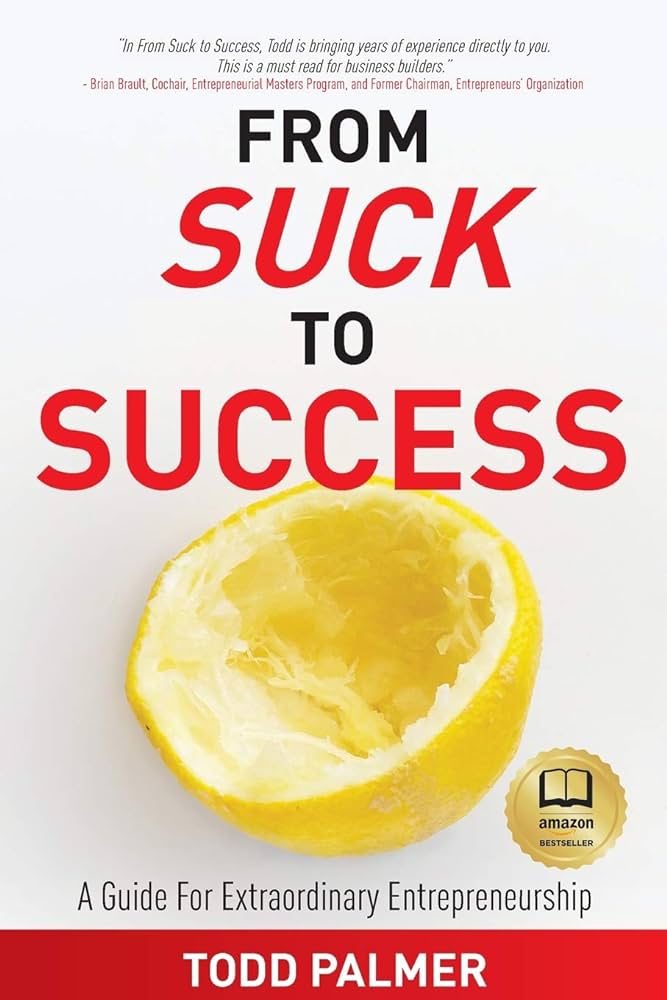This week, I watched a video that made me pause: “Why the Worst People Are So Successful.” From Mark Manson https://youtu.be/nQY3-VGTXpk
It breaks down why toxic, selfish, manipulative, and empathy-lacking individuals often rise to the top in business and leadership. On the surface, it feels unfair. But when you peel back the layers, you see the mechanics — and the costs.
As Mark Manson reminds us, “We are defined by what we are willing to struggle for.” The “worst people” succeed because they’re willing to push harder, take more risks, and bulldoze past the discomforts that stop others. The question isn’t whether they win. It’s whether they win in a way that lasts.
Why the Worst People Succeed (at Least in the Short Term)
Here are the six big levers this video pulls on:
- Confidence & Self-Focus – They don’t waste time doubting themselves. Their belief in success gives them an edge.
- Risk Taking / Lack of Inhibition – Traits like narcissism and manipulativeness reduce social fear and guilt, allowing them to push boundaries others avoid.
- Emotional Disregard as a Tool – Empathy slows people down. The “worst” exploit speed by ignoring guilt and shame.
- Manipulation of Perception & Social Strategy – They’re masters of storytelling and optics, gaming systems that reward visibility and assertiveness.
- Short-Term Gains vs Long-Term Costs – These strategies work fast, but when trust collapses, so does the sustainability of their success.
- Societal & Organizational Enablers – Our systems often reward results at all costs, confusing dominance for leadership.
The Hidden Gaps
1. Different Types of “Worst People”
Not all toxic leaders are the same:
- The Narcissist thrives on admiration; long-term cost is shattered trust.
- The Sociopath/Psychopath excels in risk but pays in wrecked relationships and legal blowback.
- The High-Drive Extrovert isn’t malicious, just blind to the human toll. I once worked with a founder like this — his company grew at rocket speed, but his turnover rate was over 40%. The human cost was too high, and eventually the culture cracked.
- The Political Operator wins through alliances and manipulation, but loyalty always fractures.
Each type requires a different coaching strategy.
2. Long-Term Relational Costs
Toxic leadership eventually drains:
- Team trust — employees go silent.
- Mental health — anxiety, burnout, learned helplessness.
- Culture — fear spreads faster than innovation.
- Leader’s life — broken marriages, loneliness hidden behind success.
3. Ethical Tradeoffs
There’s a thin line between being hard-edged and being harmful.
Disciplined leadership = clarity + accountability with care.
Toxic leadership = control + ego at others’ expense.
4. Tools for Values-Driven Leaders
Here’s how we compete without losing ourselves:
- Harness confidence without arrogance — reframe “I have to” into “I choose to.”
- Risk with guardrails — get feedback before you leap.
- Authentic storytelling — share wins and struggles.
- Relational capital — measure trust alongside revenue.
- Boundaries — empathy without over-giving.
Mindset Shifts That Matter
Winning ≠ Being ‘Worst’. Success doesn’t have to come at the cost of integrity.
Focus on character infrastructure. The worst build KPI systems; the best build trust systems.
Discomfort is the price. Leading with values means you’ll sometimes get passed up. But you’re playing a longer game.
And here’s the key: the antidote to toxic leadership isn’t just kindness — it’s psychological safety. It’s creating an environment where teams feel safe to speak up, challenge ideas, and innovate without fear of retaliation. That’s the edge toxic leaders can’t sustain — because fear may create compliance, but only safety creates creativity.
Pulling It Together
The “worst people” succeed because they move fast, focus relentlessly, and ignore the noise. But they almost always pay the invisible bill: eroded trust, damaged health, and broken relationships.
As leaders, our work isn’t to copy them — it’s to harness the strengths (clarity, boldness, presence) without the poison. To play the long game. To build not just outcomes, but legacies.
Reflective Question for You:
Where are you tempted to “win like the worst” — and how could you reframe that move into a values-driven win that lasts?
The “worst” win fast. The wise win forever. If you’re done playing short-term games and ready to lead with backbone and heart, I’m here to help you build the kind of success that doesn’t collapse under pressure.→ Book a conversation with me and let’s get you back in control of your life and your business.




